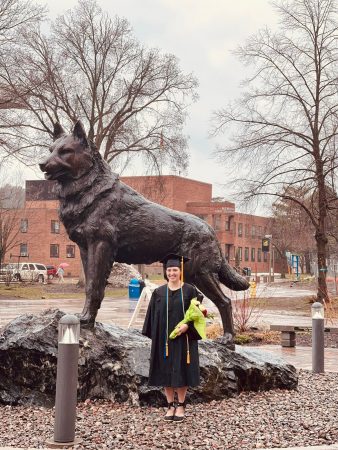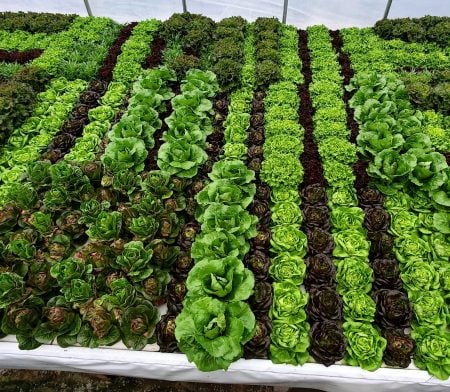
Second-generation family businesses play a crucial role in family-owned enterprises’ stability and growth. As highlighted in the Harvard Business Review, the second generation can make or break a family business’s future. While they inherit a legacy, they also face extraordinary challenges, such as managing relationships, implementing changes, and establishing their own identity. Research from the Smith Family Business Initiative at Cornell emphasizes that only about 30 percent of family businesses survive into the second generation. This brings to focus the importance of effective succession planning. Second-generation family business leaders can create a lasting and prosperous tradition by leveraging their inherited wisdom and adapting to market changes.

As a native Michigander, Ivy Stoller was born in downstate Lowell and made the trip up north to Houghton to pursue her education. Ivy graduated from Michigan Tech with a Bachelor of Science in Accounting, concentrating in data analytics, in the spring of 2023. During her time at MTU, Ivy was active in various clubs and student organizations. She participated in Kappa Sigma Iota (KSI Accounting Club) and was a member of the Volunteer Income Tax Assistance (VITA) program helping with tax returns for fellow MTU students and local community members. Additionally, Ivy was a member of Beta Gamma Sigma, an honor society for business students. Beyond academic achievements, Ivy cherished her time at Michigan Tech as a period of personal growth and building lifelong friendships.
Ivy’s family owns a business called Heidi’s Farmstand & Bakery located on 30 acres in southern Lowell. The family farm was founded in 1949 with many functions: raising cattle, running a dairy operation, and growing corn, soybeans, and wheat. Its business operations were started in 2006 by Ivy’s parents in collaboration with her mom’s brother. Later in 2007, the business was sold to Ivy’s twin uncles. Now, since Ivy has graduated, the family plans on changing it to a joint venture between the uncles, Ivy, and at least one of her siblings.
Heidi’s Farmstand & Bakery cultivates a wide variety of fruits and vegetables, using five production greenhouses for hydroponic cultivation of tomatoes, lettuce, cucumbers, and peppers. During the spring, a portion of the greenhouses are dedicated to producing hanging baskets and flower planters. In the fall, the operation transforms into an agritourism destination featuring a corn maze, pumpkin picking, and various fall activities. The majority of their produce sales are conducted through the storefront, where they retail their vegetables and other bakery items. Their bakery items include donuts, muffins, bread, and pies. They also like to take part in local farmer’s markets and supply restaurants from around the area through a co-op.

Made at Michigan Tech
Ivy foresees using her Michigan Tech degree to make changes and implement new technology for her family’s farm and bakery. Since the hydroponic greenhouses are already equipped with automatic systems for water and fertilizer injection, carbon dioxide burners, pest control, and ventilation/fans, Ivy anticipates the flower operation will benefit from these systems as well. Ivy also expects changes in the system monitoring that will contribute to healthier plants and faster growing time. Another aspect that is a concern for Ivy is the lighting, given the high number of cloudy days in Lowell, which is located in the Grand Rapids area. She expects technological innovations in lighting to address this challenge and provide sufficient light for optimal plant growth.
Ivy recognizes that the accounting world is constantly evolving. She believes that monitoring true costs and accurately assigning cost objects and drivers will become increasingly crucial. Using the knowledge that she learned in classes like Cost Accounting, Quantitative Problem-Solving, and Strategic Management, Ivy plans on adapting various accounting and management methods that align with business operations. Having a background in accounting and business, she will also work closely with their accountant to ensure the financial stability and growth of the farm and bakery. Ivy’s siblings, who possess degrees in horticulture, marketing, and crop/soil science, will be instrumental in deciding which innovative technologies to implement. They are considering adopting a water wall for evaporative cooling, which would enhance their airflow — and decrease the chance of bugs as well. They plan to implement micro screens to control the whiteflies, which will lead to vegetables growing better with less waste.
Ivy expects that the technological changes and implementations will lead to improved growth, reduced waste, quicker crop cycles, and the ability to grow crops throughout frigid Michigan winters.
The involvement of second-generation family members is critical to the success and sustainability of family-owned businesses. While they have to face unique challenges and new responsibilities, the second generation has the opportunity to build upon the foundation founded by their predecessors. This does not limit them, however; it is also possible for them to leave their imprint on the business. The second generation looks to create a lasting legacy that extends beyond their tenure. As a critical component of the business landscape, second-generation family businesses benefit not only the family but also the economy.

About the Author
Henry Basala is from Stevens Point, Wisconsin, and is pursuing dual majors in accounting with a concentration in data analytics, and management information systems. He is a member of the Kappa Sigma Iota Accounting Club, serves as both a student mentor and ambassador in the College of Business and is also a student co-champion for the Michigan Association of Certified Public Accountants. He is also a consulting intern with the Michigan Small Business Development Center Upper Peninsula Region. After graduating from Michigan Tech, Henry plans to obtain his CPA license and work in audit.
About the College of Business
The Michigan Tech College of Business offers undergraduate majors in accounting, business analytics, construction management, economics, engineering management, finance, management, management information systems, and marketing, as well as a general business option. Graduate degrees include the TechMBA®, a Master of Engineering Management, a Master of Science in Accounting, and a Master of Science in Applied Natural Resource Economics.